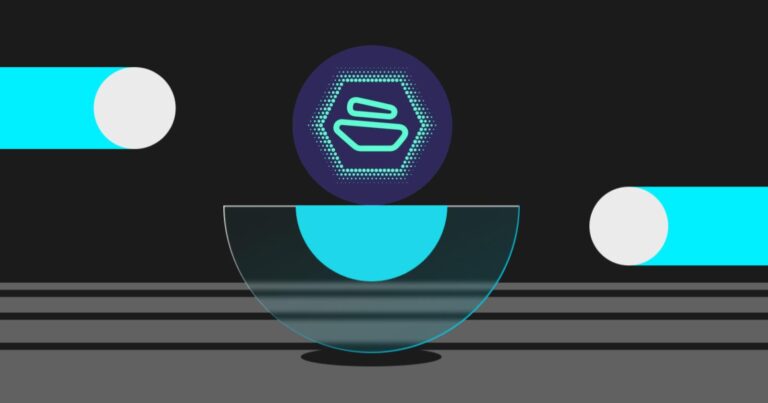AllFS3D technology is a revolutionary advancement in the manufacturing industry that is changing the way products are designed and produced. This technology, also known as additive manufacturing or 3D printing, allows manufacturers to create three-dimensional objects by layering materials on top of each other. It has the potential to greatly improve efficiency, reduce waste, and increase customization in manufacturing processes. In this article, we will explore how AllFS3D technology is revolutionizing the manufacturing industry and its various benefits for manufacturers.
Key Takeaways
- AllFS3D Technology is the future of manufacturing, revolutionizing the industry with its 3D printing capabilities.
- Manufacturers can benefit from AllFS3D Technology by reducing costs, empowering customization, and enhancing productivity.
- Small businesses can also benefit from AllFS3D Technology, as it levels the playing field and allows for more affordable manufacturing.
- AllFS3D Technology plays a crucial role in sustainable manufacturing, reducing waste and promoting eco-friendly practices.
- AllFS3D Technology is a game-changer for supply chain management, allowing for faster and more efficient production and delivery.
How AllFS3D Technology is Revolutionizing the Manufacturing Industry
AllFS3D technology works by using computer-aided design (CAD) software to create a digital model of an object. This digital model is then sent to a 3D printer, which uses a variety of materials such as plastics, metals, or ceramics to build the object layer by layer. This process allows for greater precision and complexity in design, as well as the ability to create prototypes and customized products more easily.
One of the key advantages of AllFS3D technology is its versatility and applicability across various industries. For example, in the aerospace industry, 3D printing is being used to create lightweight and complex parts for aircraft, reducing weight and improving fuel efficiency. In the medical field, 3D printing is being used to create customized prosthetics and implants that fit perfectly with a patient’s anatomy. In the automotive industry, 3D printing is being used to create prototypes and even some production parts, reducing lead times and costs.
In comparison to traditional manufacturing methods, AllFS3D technology offers several advantages. Traditional manufacturing methods often involve subtractive processes, where material is removed from a larger piece to create the desired shape. This can result in a significant amount of waste material. With AllFS3D technology, only the necessary amount of material is used, reducing waste and material costs. Additionally, traditional manufacturing methods often require the use of molds or tooling, which can be expensive and time-consuming to create. AllFS3D technology eliminates the need for molds, allowing for greater flexibility and faster production times.
The Benefits of AllFS3D Technology for Manufacturers
AllFS3D technology offers a wide range of benefits for manufacturers, including increased efficiency and speed of production, reduced waste and material costs, improved product quality and consistency, and the ability to create complex designs and prototypes.
One of the main advantages of AllFS3D technology is its ability to increase efficiency and speed of production. Traditional manufacturing methods often involve multiple steps and processes, which can be time-consuming and labor-intensive. With AllFS3D technology, products can be produced in a single step, reducing the time and effort required. This can lead to faster production times and shorter lead times for customers.
In addition to increased efficiency, AllFS3D technology also reduces waste and material costs. Traditional manufacturing methods often result in a significant amount of waste material, as excess material is removed to create the desired shape. With AllFS3D technology, only the necessary amount of material is used, reducing waste and saving costs. This is particularly beneficial for industries that use expensive materials, such as aerospace or medical.
Furthermore, AllFS3D technology improves product quality and consistency. Traditional manufacturing methods can be prone to human error or variations in production processes, leading to inconsistencies in the final product. With AllFS3D technology, products are created using precise digital models, ensuring accuracy and consistency in every piece produced. This can result in higher-quality products and increased customer satisfaction.
Lastly, AllFS3D technology allows manufacturers to create complex designs and prototypes more easily. Traditional manufacturing methods often have limitations when it comes to creating intricate or complex shapes. With AllFS3D technology, manufacturers have the freedom to design and produce objects with intricate details and complex geometries. This opens up new possibilities for product innovation and design.
AllFS3D Technology: A Game-Changer for Small Businesses
AllFS3D technology is not only benefiting large manufacturers but also small businesses. In the past, small businesses often faced barriers to entry in the manufacturing industry due to high costs and limited resources. However, AllFS3D technology is making manufacturing more accessible for small businesses, allowing them to compete with larger companies and innovate in their respective industries.
One of the main ways AllFS3D technology is empowering small businesses is by reducing the need for expensive tooling or molds. Traditional manufacturing methods often require the creation of molds or tooling, which can be costly and time-consuming. This can be a significant barrier for small businesses with limited budgets. With AllFS3D technology, small businesses can create products without the need for molds, reducing costs and allowing for greater flexibility in production.
Additionally, AllFS3D technology allows small businesses to create prototypes more easily. Prototyping is an important step in product development, as it allows businesses to test and refine their designs before moving into full-scale production. Traditionally, prototyping can be expensive and time-consuming, especially for small businesses. AllFS3D technology allows for rapid prototyping, where products can be created quickly and at a lower cost. This enables small businesses to iterate and refine their designs more efficiently, leading to better products and faster time to market.
Furthermore, AllFS3D technology enables small businesses to offer customized products to their customers. Customization is becoming increasingly important in today’s market, as consumers are seeking personalized products that meet their specific needs and preferences. With AllFS3D technology, small businesses can easily create customized products without the need for expensive tooling or long lead times. This gives them a competitive advantage and allows them to cater to niche markets or individual customer requirements.
The Role of AllFS3D Technology in Sustainable Manufacturing
Sustainability is a growing concern in the manufacturing industry, as companies are seeking ways to reduce their environmental impact and operate more responsibly. AllFS3D technology plays a significant role in sustainable manufacturing practices, offering several advantages over traditional manufacturing methods.
One of the main ways AllFS3D technology reduces the environmental impact of manufacturing is by reducing waste. Traditional manufacturing methods often result in a significant amount of waste material, as excess material is removed to create the desired shape. This waste material can be difficult to dispose of and can contribute to pollution and resource depletion. With AllFS3D technology, only the necessary amount of material is used, reducing waste and minimizing the environmental impact.
Additionally, AllFS3D technology allows for more efficient use of materials. Traditional manufacturing methods often involve subtractive processes, where material is removed from a larger piece to create the desired shape. This can result in a significant amount of wasted material. With AllFS3D technology, materials are used more efficiently, as they are only added where needed. This reduces material costs and minimizes the environmental impact.
Furthermore, AllFS3D technology enables the use of sustainable materials in manufacturing. Traditional manufacturing methods often rely on materials that are derived from non-renewable resources or have a high carbon footprint. With AllFS3D technology, manufacturers have the flexibility to use sustainable materials such as bioplastics or recycled materials. This reduces reliance on non-renewable resources and contributes to a more sustainable manufacturing process.
How AllFS3D Technology is Reducing Manufacturing Costs

One of the key advantages of AllFS3D technology is its ability to reduce costs for manufacturers. Traditional manufacturing methods often involve multiple steps and processes, which can be time-consuming and expensive. AllFS3D technology streamlines the production process and eliminates the need for expensive tooling or molds, resulting in significant cost savings.
One way AllFS3D technology reduces costs is by eliminating the need for molds or tooling. Traditional manufacturing methods often require the creation of molds or tooling, which can be expensive and time-consuming. These molds or tooling need to be designed, manufactured, and maintained, adding to the overall cost of production. With AllFS3D technology, products can be created directly from a digital model, eliminating the need for molds or tooling. This reduces costs and allows for greater flexibility in production.
Additionally, AllFS3D technology reduces material costs. Traditional manufacturing methods often result in a significant amount of waste material, as excess material is removed to create the desired shape. This waste material can be costly, as it represents unused resources that have been invested in. With AllFS3D technology, only the necessary amount of material is used, reducing waste and saving costs. This is particularly beneficial for industries that use expensive materials, such as aerospace or medical.
Furthermore, AllFS3D technology reduces labor costs. Traditional manufacturing methods often involve multiple steps and processes that require manual labor. This can be time-consuming and labor-intensive, leading to higher labor costs. With AllFS3D technology, products can be produced in a single step, reducing the time and effort required. This can lead to lower labor costs and increased efficiency.
AllFS3D Technology: Empowering Customization in Manufacturing
Customization is becoming increasingly important in today’s market, as consumers are seeking personalized products that meet their specific needs and preferences. AllFS3D technology is playing a significant role in enabling greater customization and personalization in manufacturing processes.
One of the main advantages of AllFS3D technology is its ability to create customized products more easily. Traditional manufacturing methods often have limitations when it comes to customization, as they require expensive tooling or long lead times. With AllFS3D technology, manufacturers can easily create customized products without the need for molds or long lead times. This allows for greater flexibility and responsiveness to customer demands.
Additionally, AllFS3D technology allows for greater design freedom and complexity. Traditional manufacturing methods often have limitations when it comes to creating intricate or complex shapes. With AllFS3D technology, manufacturers have the freedom to design and produce objects with intricate details and complex geometries. This opens up new possibilities for product innovation and design, allowing for greater customization and personalization.
Furthermore, AllFS3D technology enables mass customization. Mass customization is the ability to produce large quantities of customized products at a relatively low cost. Traditional manufacturing methods often struggle to achieve mass customization, as they require expensive tooling or long lead times. With AllFS3D technology, manufacturers can easily create customized products in large quantities, allowing for greater scalability and profitability.
The Impact of AllFS3D Technology on Supply Chain Management
AllFS3D technology is not only changing the way products are designed and produced but also how supply chains operate. This technology is improving supply chain efficiency and flexibility, leading to cost savings and increased customer satisfaction.
One of the main ways AllFS3D technology is improving supply chain efficiency is by reducing lead times. Traditional manufacturing methods often involve multiple steps and processes that can be time-consuming and result in long lead times. With AllFS3D technology, products can be produced in a single step, reducing the time required for production. This allows for faster order fulfillment and shorter lead times for customers.
Additionally, AllFS3D technology reduces the need for inventory storage. Traditional manufacturing methods often require manufacturers to hold a significant amount of inventory in order to meet customer demand. This can be costly, as it ties up capital and requires storage space. With AllFS3D technology, products can be produced on-demand, eliminating the need for large inventory storage. This reduces costs and improves cash flow for manufacturers.
Furthermore, AllFS3D technology enables greater flexibility in supply chain management. Traditional manufacturing methods often have limitations when it comes to changing product designs or introducing new products. This can be a significant barrier for manufacturers who need to respond quickly to changing customer demands or market trends. With AllFS3D technology, manufacturers can easily modify product designs or introduce new products without the need for expensive tooling or long lead times. This allows for greater agility and responsiveness in supply chain management.
AllFS3D Technology: Enhancing Productivity in Manufacturing
AllFS3D technology is enhancing productivity for manufacturers by streamlining production processes, reducing lead times, and improving overall efficiency. This technology is enabling manufacturers to produce more products in less time, leading to increased output and profitability.
One of the main ways AllFS3D technology is improving productivity is by reducing the number of steps and processes required in production. Traditional manufacturing methods often involve multiple steps, such as machining, assembly, and finishing, which can be time-consuming and labor-intensive. With AllFS3D technology, products can be produced in a single step, eliminating the need for additional processes. This reduces the time and effort required for production, leading to increased productivity.
Additionally, AllFS3D technology reduces lead times, allowing manufacturers to produce products more quickly. Traditional manufacturing methods often have long lead times due to the time required for tooling or the need to wait for materials to arrive. With AllFS3D technology, products can be produced on-demand, reducing lead times and allowing for faster order fulfillment. This improves customer satisfaction and increases overall productivity.
Furthermore, AllFS3D technology improves overall efficiency in manufacturing processes. Traditional manufacturing methods often have limitations when it comes to material usage or design complexity, which can result in inefficiencies or wasted resources. With AllFS3D technology, materials are used more efficiently, as they are only added where needed. This reduces waste and improves overall efficiency in production. Additionally, AllFS3D technology allows for greater design freedom and complexity, enabling manufacturers to optimize product designs for maximum efficiency.
The Future of Manufacturing with AllFS3D Technology: What to Expect
The future of manufacturing with AllFS3D technology is promising, with new applications and industries expected to benefit from this revolutionary technology. As the technology continues to advance and become more accessible, we can expect to see increased adoption and innovation in the manufacturing industry.
One potential application of AllFS3D technology is in the construction industry. 3D printing has already been used to create small-scale structures, such as houses or bridges. As the technology advances, we can expect to see larger and more complex structures being created using AllFS3D technology. This could revolutionize the construction industry by reducing costs, increasing efficiency, and enabling greater design freedom.
Another potential application of AllFS3D technology is in the food industry. 3D printing has already been used to create customized chocolates or intricate cake decorations. As the technology advances, we can expect to see more complex and personalized food products being created using AllFS3D technology. This could open up new possibilities for food customization and personalization, allowing consumers to create unique and personalized food experiences.
Furthermore, AllFS3D technology has the potential to transform the healthcare industry. 3D printing has already been used to create customized prosthetics, implants, and medical devices. As the technology continues to advance, it could revolutionize the way surgeries are performed. Surgeons could use 3D printing to create patient-specific models of organs or body parts, allowing them to practice complex procedures before operating on a real patient. This would not only improve surgical precision but also reduce the risk of complications. Additionally, 3D printing could enable the production of personalized medications, tailored to an individual’s specific needs and genetic makeup. This could lead to more effective treatments and better patient outcomes. Overall, AllFS3D technology has the potential to greatly enhance the quality of healthcare delivery and improve patient care.
Looking for an interesting read related to allfs3d? Check out this fascinating article on ChatSonic GPT, a powerful language model that can generate human-like responses in chat conversations. With its advanced natural language processing capabilities, ChatSonic GPT is revolutionizing the way we interact with AI. Discover how this cutting-edge technology is being used in various industries and explore the potential it holds for enhancing customer service, virtual assistants, and more. Dive into the world of ChatSonic GPT by clicking here.
FAQs
What is allfs3d?
allfs3d is a software tool used for 3D printing. It is designed to convert 2D images into 3D models that can be printed using a 3D printer.
How does allfs3d work?
allfs3d uses a process called photogrammetry to create 3D models. It takes multiple 2D images of an object from different angles and uses algorithms to create a 3D model from those images.
What file formats does allfs3d support?
allfs3d supports a variety of file formats, including STL, OBJ, and PLY.
What are the system requirements for allfs3d?
allfs3d can run on Windows, Mac, and Linux operating systems. The software requires a minimum of 4GB of RAM and a graphics card with at least 1GB of memory.
Is allfs3d free?
No, allfs3d is not a free software tool. It is available for purchase on the official website.
What are the benefits of using allfs3d?
allfs3d allows users to create 3D models from 2D images quickly and easily. It is also a cost-effective solution for those who do not have access to expensive 3D scanning equipment.









+ There are no comments
Add yours